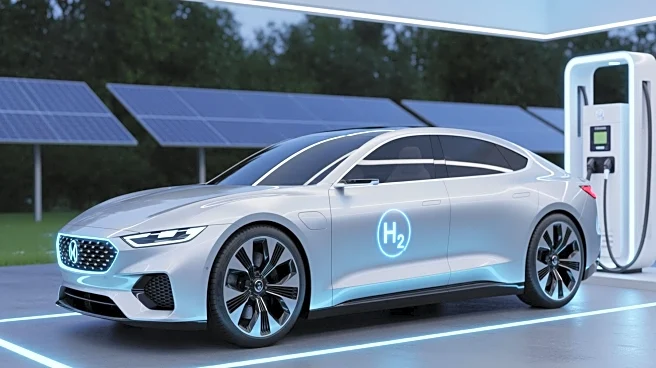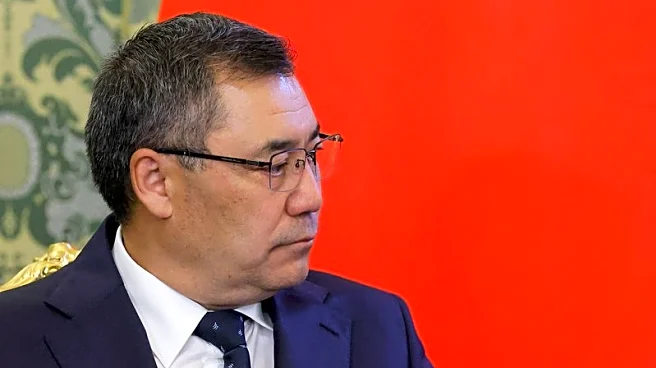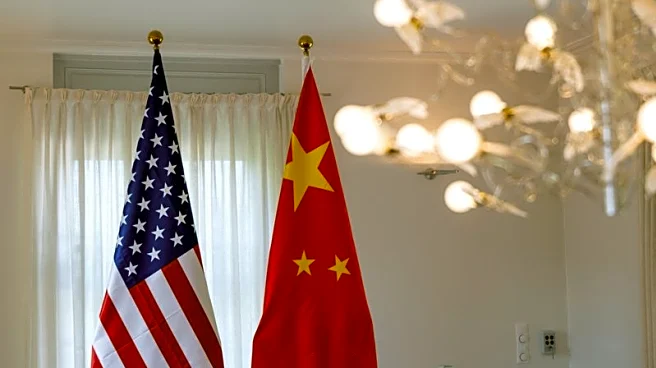What's Happening?
South Korea has emerged as a unique market where hydrogen car sales have increased, despite a global decline in the sector. Hyundai's updated Nexo model, released in June 2025, has accounted for more than
half of all fuel-cell vehicles sold worldwide this year, with nearly all sales occurring in South Korea. The country sold just under 3,500 Nexos in the first nine months of 2025, compared to approximately 120,000 battery-electric vehicles. This growth is largely driven by substantial government subsidies, which reduce the Nexo's retail price from $53,000 to between $26,000 and $33,000. The South Korean government has invested heavily in hydrogen infrastructure, with 231 hydrogen refueling stations, although this is dwarfed by the over 250,000 electric vehicle charging points available.
Why It's Important?
The increase in hydrogen vehicle sales in South Korea highlights the country's strategic focus on hydrogen as a path to energy independence and a domestic industry less reliant on Chinese battery supply chains. Hyundai and its subsidiaries have heavily invested in fuel-cell production and hydrogen infrastructure, supported by government subsidies. However, the economic viability of hydrogen vehicles remains questionable, as the infrastructure serves a much smaller market compared to electric vehicles. The disparity in infrastructure investment raises concerns about the long-term sustainability of hydrogen as a transportation fuel.
What's Next?
South Korea's commitment to hydrogen mobility may lead to stranded investments if the global market continues to shrink. The country's focus on hydrogen could isolate its infrastructure investments, as passenger hydrogen cars account for less than 0.2% of national vehicle sales. The government and Hyundai may need to reassess their strategy if the global trend away from hydrogen vehicles persists.
Beyond the Headlines
The persistence of South Korea's hydrogen strategy reflects a deeper policy error, as the economics of hydrogen for transportation are inefficient compared to direct battery use. The country's approach may serve as a cautionary tale for other nations considering similar investments in hydrogen technology.









